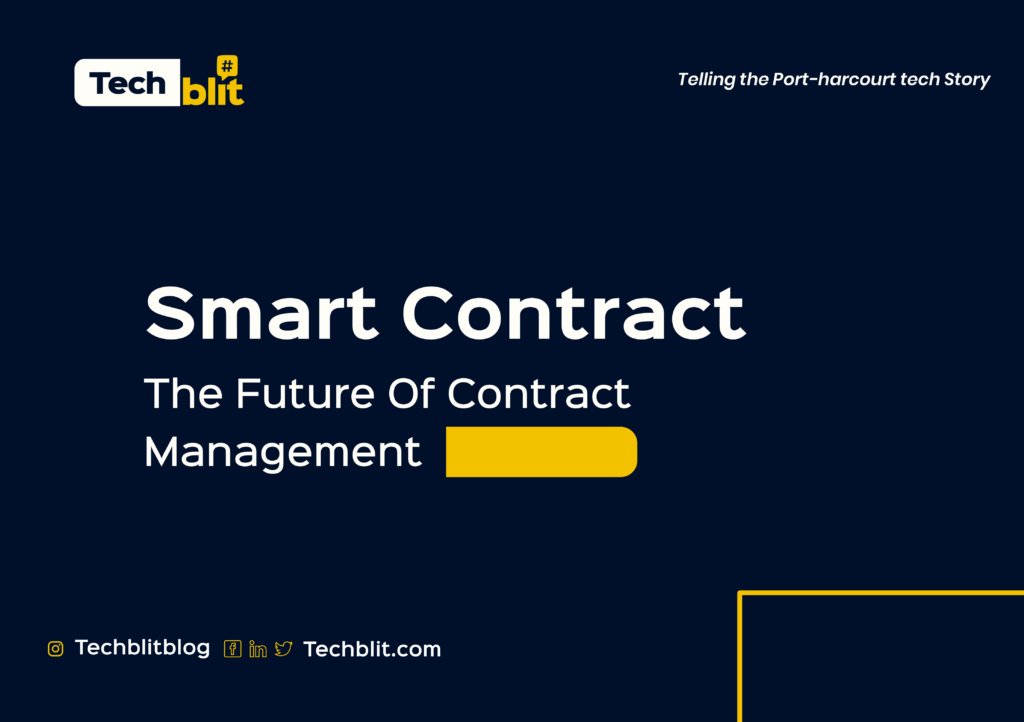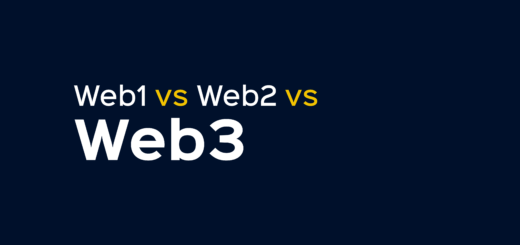Smart Contracts: The Future of Contract Management

A contract is a legally enforceable agreement between two or more parties.
A significant portion of our professional and personal life are formed and governed by contracts. It is the legal obligation that guarantees that all contracts are faithfully followed.
A smart contract authenticates and prevents tampering with each transaction. It ensures that each transaction is safe, secure, and finished on time.
Before we dive properly into the world of smart contracts, let’s comprehend the concept behind smart contracts’ conception and who invented it.
WHEN AND WHY WERE SMART CONTRACTS INVENTED?
In 1994, Nick Szabo invented the idea of recording contracts in computer codes. The contract will automatically be activated when certain criteria are met.
What made this notion such a good one? It’s because you won’t have to deal with a middleman anymore before signing a contract. Instead, the contracts are carried out automatically on a separate network that is entirely governed by computers.
Skabo’s creation had one small problem: blockchain was nonexistent in 1994.
But the year is 2022, and blockchain is a reality at this time.
Bitcoin pioneered the use of blockchain technology in 2009. A bright young man named Vitalik Buterin founded Ethereum in 2015, which featured the first functional smart contracts.

WHAT ARE SMART CONTRACTS?
A distributed ledger called a blockchain keeps track of an expanding collection of data entries that are protected from alteration and change.
The implementation of smart contracts is the next development in blockchain technology. Smart contracts are computer programs with built-in digital wallets that may be configured to carry out particular activities when certain criteria are satisfied.
A smart contract is a computer protocol that has the ability to carry out a contract’s terms automatically.
Cryptocurrencies like Bitcoin and Ethereum, which are designed to digitally facilitate, verify, or enforce the negotiation or fulfillment of a contract, are powered by this technology.
Smart contracts enable the execution of reliable transactions without the involvement of third parties. These exchanges can be tracked and are irreversible.
Usually, before beginning any business that includes a sizable amount of money or other key commodities, you’d often need to have a lawyer draught a contract agreement (land, property, shares).
After the agreement contract is written and signed by the parties involved, the lawyer proceeds to set up an escrow account and ensures that the terms and conditions of the agreement contract are executed correctly before releasing the goods, shares, lands, etc.
Smart contracts work similarly to vending machines. With a vending machine, you walk up to any available one, insert your money and in a few minutes, you have your snack in hand.
Smart contracts operate in the exact same way. You drop any digital coin into the vending machine(ledger) and your deeds, contracts, goods, licenses, or whatever the contract was for simply drops into your account.
As simple as that.
The smart contract ensures that the terms and conditions of an agreement are satisfactory.
It dictates the rules of the agreement and ensures that all rules were adhered to. Additionally, it dictates the penalties for violating an agreement.

Key points
⦁ Smart contracts are agreements between two or more parties that are coded into the blockchain. The code and agreements are stored in an immutable public ledger, which cannot be corrupted or hacked
⦁ Using a smart contract makes the transaction irreversible, trackable and transparent.
⦁ Nick Szabo first proposed smart contracts in 1994. In 1996, they were used to transfer the value of money from one bank account to another securely over the internet without any human intervention.
HOW DO SMART CONTRACTS WORK?
We’ve been on a long tirade about smart contracts, what they are, why, and when they were invented.
Let’s now examine in detail how smart contracts function, are enforced, and are managed.
Smart contracts operate according to straightforward logic, such as IF-THEN:
- I will give you XYZ amount of money, in digital coins IF you send me an XYZ item.
- Complete the work and the agreed-upon digital asset will be sent to your wallet.
I’ll illustrate with a real-life example.
Sarah is moving to be closer to the University and wants to sell her house, Dickson indicates interest in the house. Sarah agrees to sell for 300 Ether.
The smart contract will read like this; When Dickson transfers 300 Ether to Sarah’s wallet, he’ll get the key to Sarah’s house.
Dickson quickly transfers 300 Ether to Sarah’s wallet, she confirms it, and hands over the keys to Dickson.
Say hello to a new homeowner!
With the smart contract in place, they’ve bypassed the rigorous back and forth of lawyers, and brokers avoided delays and paid no commissions.
The smart contract was automatically executed once the agreement in this case payment of 300 Ether was made. Every single middle man was cut off (banks, lawyers, brokers). All of it was made possible by blockchain technology.
A blockchain is a shared database owned by numerous parties and controlled by several computers called (nodes). It is a digital ledger that is shared among various computers and contains the transaction histories of actual purchases.
The wonderful thing about blockchain technology is that no one connected to it can tamper with the data (purchases records and transactions).
Smart contracts are decentralized on the blockchain. The blockchain ensures that smart contracts are fair and trustworthy.
Decentralized simply indicates that they are not under the control of a single entity or group (banks, government). This indicates that it is virtually impossible to hack. Because in order to gain access to the blockchain and the numerous smart contracts it contains, the hacker will need to successfully compromise more than half of the nodes.
In essence, smart contracts are capable of operating securely and automatically without being altered.
BENEFITS OF SMART CONTRACTS
Accuracy
⦁ Smart contracts ensure that contractual agreements are accurately documented
⦁ Since it’s automated, it prevents human errors.
Efficiency
⦁ Smart contracts are digital; hence paperwork isn’t required when carrying out the transaction
⦁ The time required in executing a contract is significantly reduced with smart contracts.
Security
⦁ Because smart contracts transactions are encrypted, it’s impossible to hack
⦁ Smart contracts blockchain is decentralized, therefore the hacker will have to tamper with half of the nodes to be able to corrupt the data.
Trust and Transparency
⦁ Encrypted transaction logs are shared between contractual parties.
⦁ There’s no middleman to corrupt or tamper with the data
Guaranteed Results
⦁ Smart contracts have eliminated the need for courts, lawyers, and litigation processes.
⦁ The smart contract is executed in line with the initial contractual agreement.
INDUSTRIES WHERE SMART CONTRACTS COULD WORK
Aside from the real estate (Sarah and Dickson) example, I cited earlier to help you better understand smart contracts, there are several other industries where smart contracts can be beneficial.
Smart contracts can help automate financial institutions’ activities, especially their numbers crushing activities like accounting. Smart contracts would do wonders in the health sector by providing airtight security around sensitive patient information while ensuring minimum chances of having erroneous data which leads to the wrong diagnoses.
⦁ Government (voting and election protection)
⦁ NFTs
⦁ Automobile
⦁ Education
⦁ Insurance
⦁ Business Management
⦁ Supply Chain
⦁ Transport and Logistics
⦁ Agriculture
⦁ Startups
⦁ Travel and Tourism
CONCLUSION
A few years ago, cryptocurrencies like Bitcoin and Ethereum were nonexistent, but now, individuals, organizations, and certain countries recognize them as acceptable forms of payment.
There is a huge market for smart contracts to thrive in our day-to-day transactions and activities. It can greatly improve transactions, and purchases, and manage contracts of individuals, companies, small-scale businesses, entrepreneurs, creators, etc.
However, the widespread integration and acceptance of smart contracts will be slow, due to governing laws and other factors, so to speak, until there are provisions made in the blockchain for real property records (bank loans, purchase agreements, deed of sale, liens) to be recorded, I’m afraid, your real estate agent or landlord won’t be handing over keys to you.
But if you decide to integrate smart contracts as a payment gateway in your business, be sure to consult a legal practitioner and technical experts to ensure that the final code meets your desired expectations.
Author: Olivia Eneani
(Content creator and digital marketer, 07068308137.)



Thank you very much for sharing, I learned a lot from your article. Very cool. Thanks. nimabi